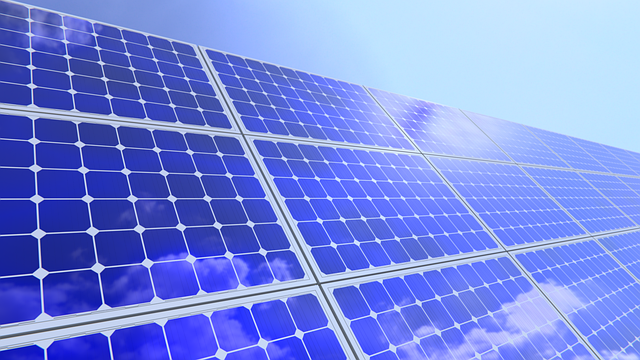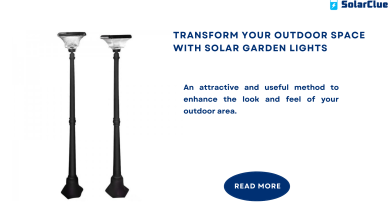Off Grid Solar Systems for 24/7 Power – How Do They Work?
Off-grid solar systems are becoming increasingly popular as a sustainable and reliable alternative to traditional energy sources. With the ability to generate electricity using sunlight, off-grid solar systems offer many benefits, including reduced electricity bills and decreased reliance on fossil fuels. However, a common question that arises is whether off-grid solar systems can work 24 hours a day. In this blog, we will explore the factors that affect the continuous operation of off-grid solar systems and discuss how they can be designed to function reliably.
The Basics of Off-Grid Solar Systems
Off-grid solar systems consist of solar panels, charge controllers, batteries, and inverters. The solar panels capture sunlight and convert it into DC (direct current) electricity. The charge controller regulates the current flowing from the solar panels to the batteries, preventing overcharging. The batteries store the electricity generated during the day and provide power during the night or when sunlight is not available. The inverter converts the stored DC electricity into AC (alternating current) electricity, which is compatible with most household appliances.
Solar Availability and Energy Storage
Solar availability plays a vital role in the continuous operation of off-grid solar systems. Since solar panels rely on sunlight to generate electricity, their output is directly influenced by the amount of sunlight received. Therefore, the geographical location of the off-grid solar system plays a significant role in determining its performance throughout the day.
Areas with ample sunshine, such as deserts or tropical regions, are ideal for off-grid solar systems as they receive more sunlight throughout the year. In contrast, regions with frequent cloud cover or long winters may experience reduced solar availability, impacting the system’s ability to generate electricity consistently.
To overcome the challenge of inconsistent solar availability, off-grid solar systems utilize energy storage. Batteries store excess electricity generated during peak sunlight hours, allowing it to be used during periods of low or no sunlight. The capacity of the batteries and their ability to retain charge affect the system’s longevity and continuous operation.
Energy Demand and Load Management
Another critical aspect that determines whether off-grid solar systems can work 24 hours every day is the energy demand. Estimating the energy requirements of a household or facility is crucial to designing an off-grid solar system capable of meeting those demands consistently.
Load management is a technique used to balance energy demand and supply. By strategically distributing energy-consuming activities or appliances throughout the day, load management helps optimize the use of available solar energy. For example, running high-energy-consuming appliances like washing machines or air conditioners during peak sunlight hours ensures maximum utilization of the solar system’s output.
Efficient load management can minimize the strain on the off-grid solar system’s energy storage, enabling it to meet energy demands round the clock. Moreover, technological advancements, such as programmable timers or sensors, can automate load management, further enhancing the system’s continuous operation.
Backup Generators and Hybrid Systems
While off-grid solar systems are designed to operate independently from the grid, incorporating backup generators can enhance their 24/7 functionality. Backup generators powered by diesel, natural gas, or propane can supplement the solar system during periods of low solar availability or high energy demands.
For locations that experience extended periods of low solar availability or unpredictable weather patterns, hybrid systems are a viable solution. Hybrid systems combine off-grid solar systems with a connection to the grid, allowing for seamless switching between solar power and grid power when needed.
Maintenance and Monitoring
To ensure the continuous operation of off-grid solar systems, regular maintenance and monitoring are essential. Batteries should be regularly checked for proper charging and discharging cycles, and cables and wiring should be inspected for any signs of wear or damage. Additionally, solar panels require periodic cleaning to maximize their efficiency.
Monitoring systems provide real-time data on the performance of off-grid solar systems, including solar generation, battery voltage, and energy consumption. By tracking and analyzing this data, any issues or inefficiencies can be identified and addressed promptly, ensuring the system’s optimal performance.
Conclusion
Experience the freedom of uninterrupted power with SolarClue®’s off-grid solar systems. Discover how these systems work 24/7, storing solar energy in batteries for consistent electricity day and night. Whether in remote areas or urban spaces, our scalable solutions cater to diverse energy needs. With advanced inverters and regular maintenance, SolarClue® ensures optimal performance. Embrace energy independence, reduce your environmental impact, and enjoy reliable power during emergencies. Transition to a sustainable future—contact SolarClue® today for a personalized consultation and take the first step toward experiencing uninterrupted power with our cutting-edge off-grid solar systems.
Frequently Asked Questions
Yes, with the integration of battery storage, off-grid solar systems store excess energy during sunlight hours, ensuring a consistent power supply day and night.
Batteries store excess energy generated by solar panels, acting as a power reserve for use during periods of low sunlight or at night.
Inverters convert DC power from solar panels into AC power used by household appliances, enabling a seamless transition between solar-generated and stored power.
Yes, off-grid systems are designed for locations without grid access, providing an independent and reliable power source.
While more common in remote areas, off-grid systems can be installed in urban locations, offering energy independence and potential cost savings.
Properly designed systems consider seasonal variations, and the inclusion of sufficient battery storage ensures a continuous power supply even during low sunlight periods.
Yes, these systems are scalable, allowing for the addition of more solar panels and increased battery capacity as energy demands grow.
Regular maintenance includes checking battery health, cleaning solar panels, and inspecting the entire system for optimal performance.
With stored energy in batteries, off-grid systems act as a reliable backup power source during grid outages or emergencies.
Contact SolarClue® for a personalized consultation. Our experts will assess your energy needs and design an off-grid solar system tailored to provide continuous power, day and night.




